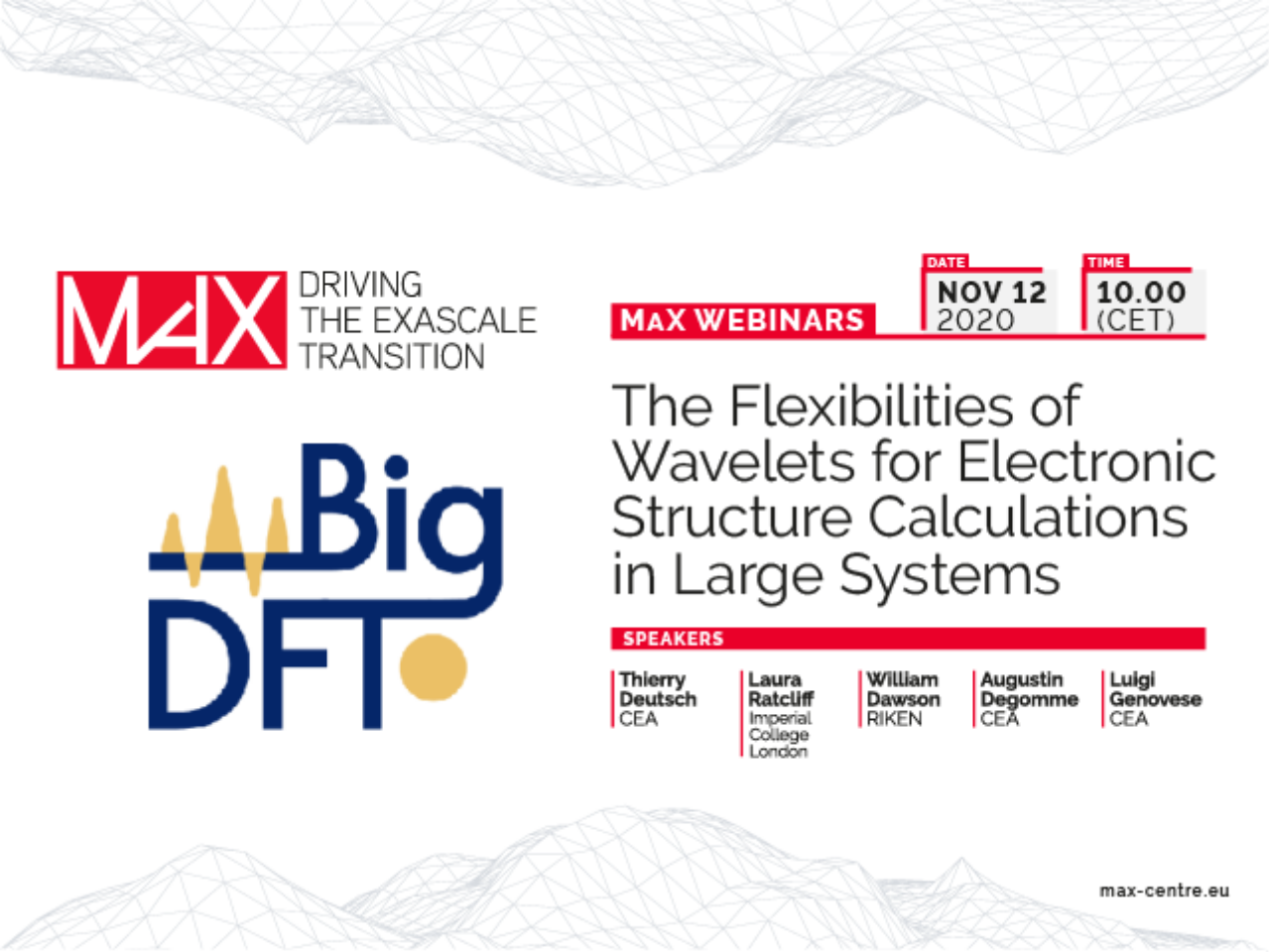The Flexibilities of Wavelets for Electronic Structure Calculations in Large Systems

Description
The BigDFT project started in 2005 with the aim of testing the advantages of using a Daubechies wavelet basis set for Kohn–Sham DFT with pseudopotentials. This project led to the creation of the BigDFT code, which employs a computational approach with optimal features of flexibility, performance, and precision of the results. In particular, the employed formalism has enabled the implementation of an algorithm able to tackle DFT calculations of large systems, up to many thousands of atoms, with a computational effort that scales linearly with the number of atoms.
In this webinar, we will present some of the features that have been made possible by the peculiar properties of Daubechies wavelets. In particular, we focus our attention on the usage of DFT for large-scale systems. We show how the localized description of the KS problem, emerging from the features of the basis set, is helpful in providing a simplified description of large-scale electronic structure calculations. During the presentation, we will highlight how the MaX consortium enabled the possibility of the implementation of advanced functionalities in the context of pre-exascale computing.
Visit the official webinar page(opens in new window) to register and see the exciting agenda prepared for its attendees.
---
About MaX
MaX - Materials design at the Exascale has received funding from the European Union's Horizon 2020 under Grant Agreement n. 824143. Led by CNR (Italy), the MaX consortium partners include SISSA (Italy), ICN2 (Spain), JUELICH (Germany), CEA (France), EPFL (Switzerland), Universiteit Gent (Belgium), CINECA (Italy), BSC (Spain), ETHZurich (Switzerland), E4 (Italy), ARM (United Kingdom), ICTP (Italy), Trust-IT (Italy).
www.max-centre.eu I www.linkedin.com/company/max-centre I @max_center2(opens in new window)
Keywords
High-Performance Computing (HPC), Materials design, materials modelling, materials simulation, High Throughput Computing (HTC), materials science, data analytics, computational algorithms, DFT


